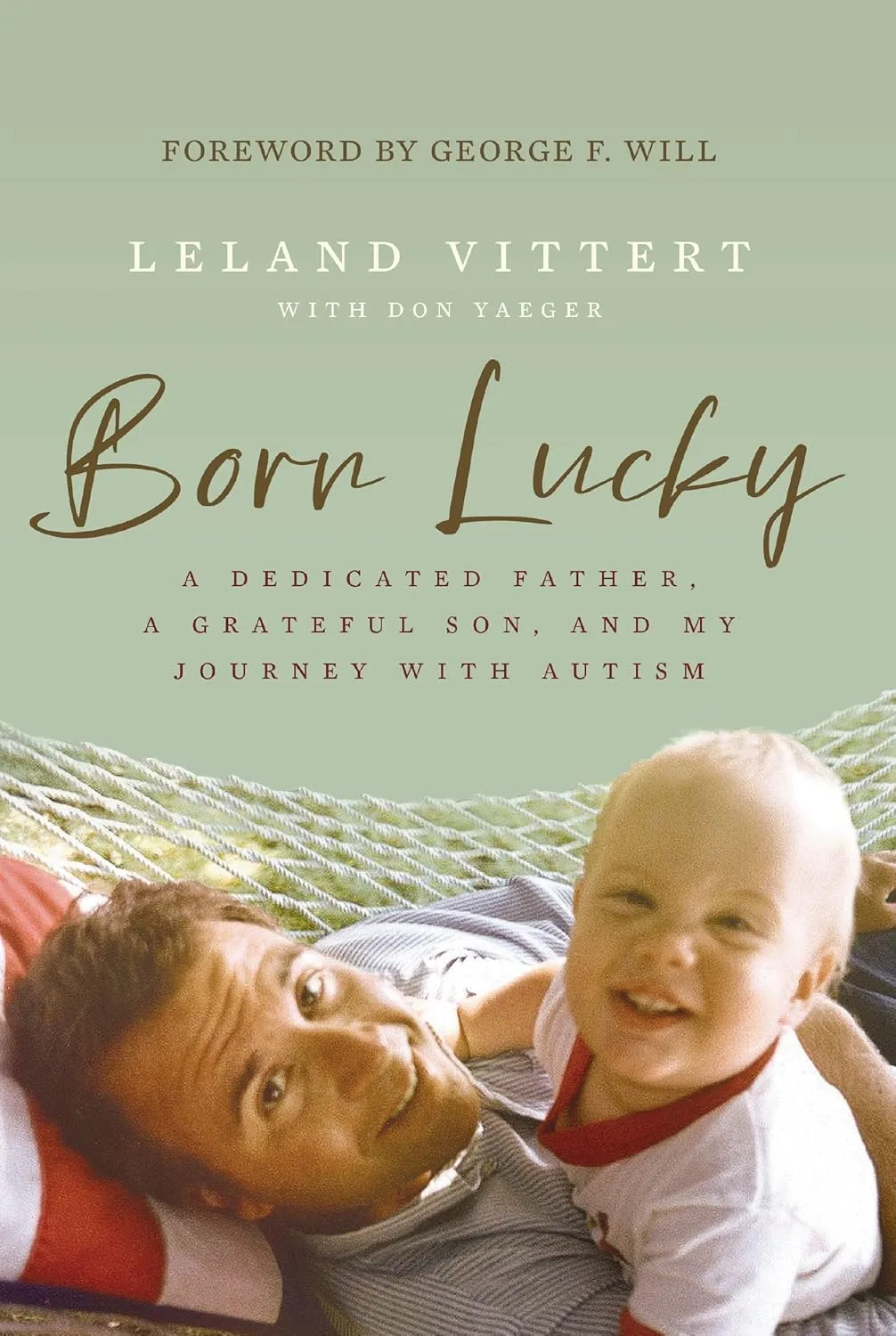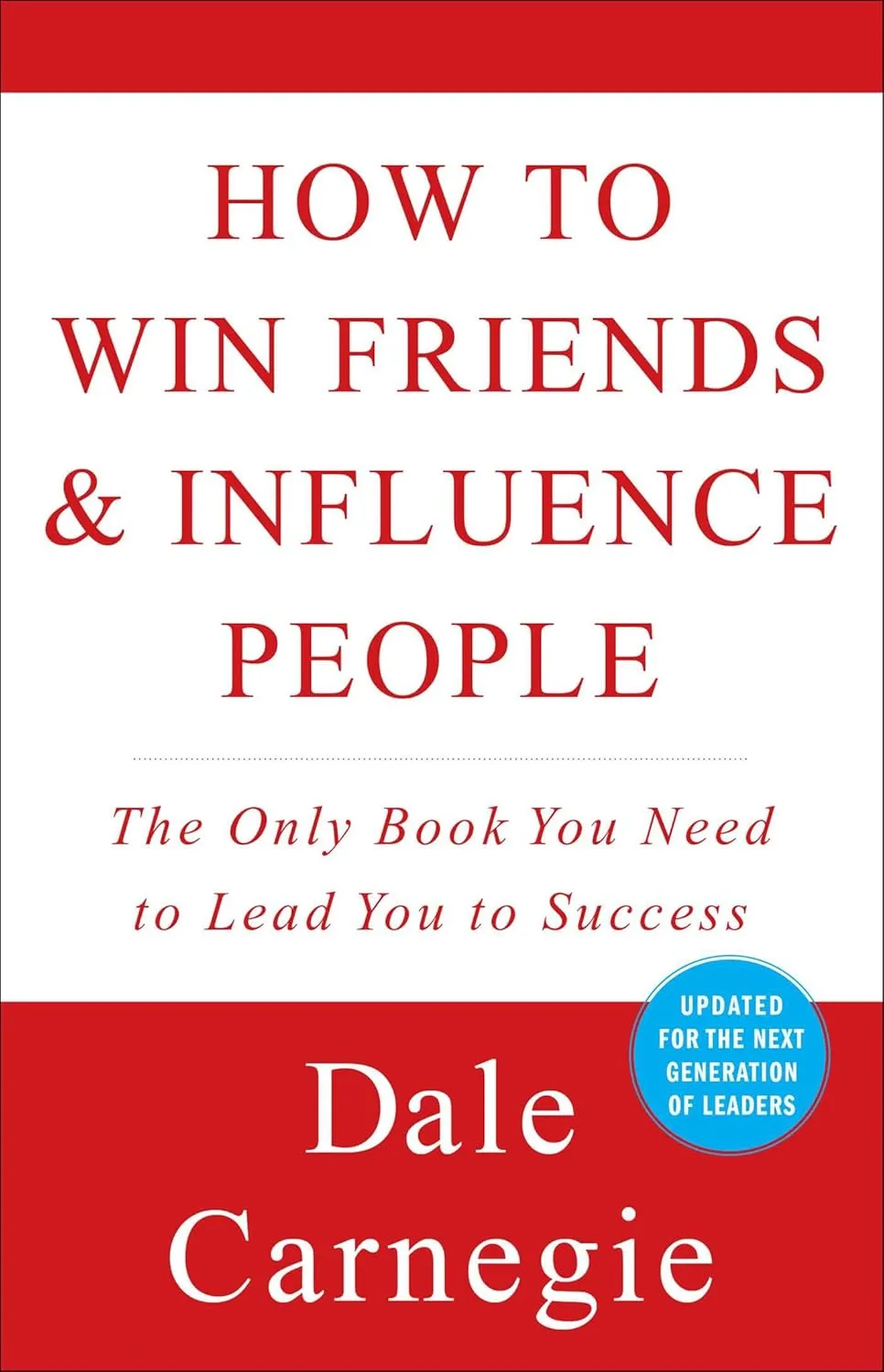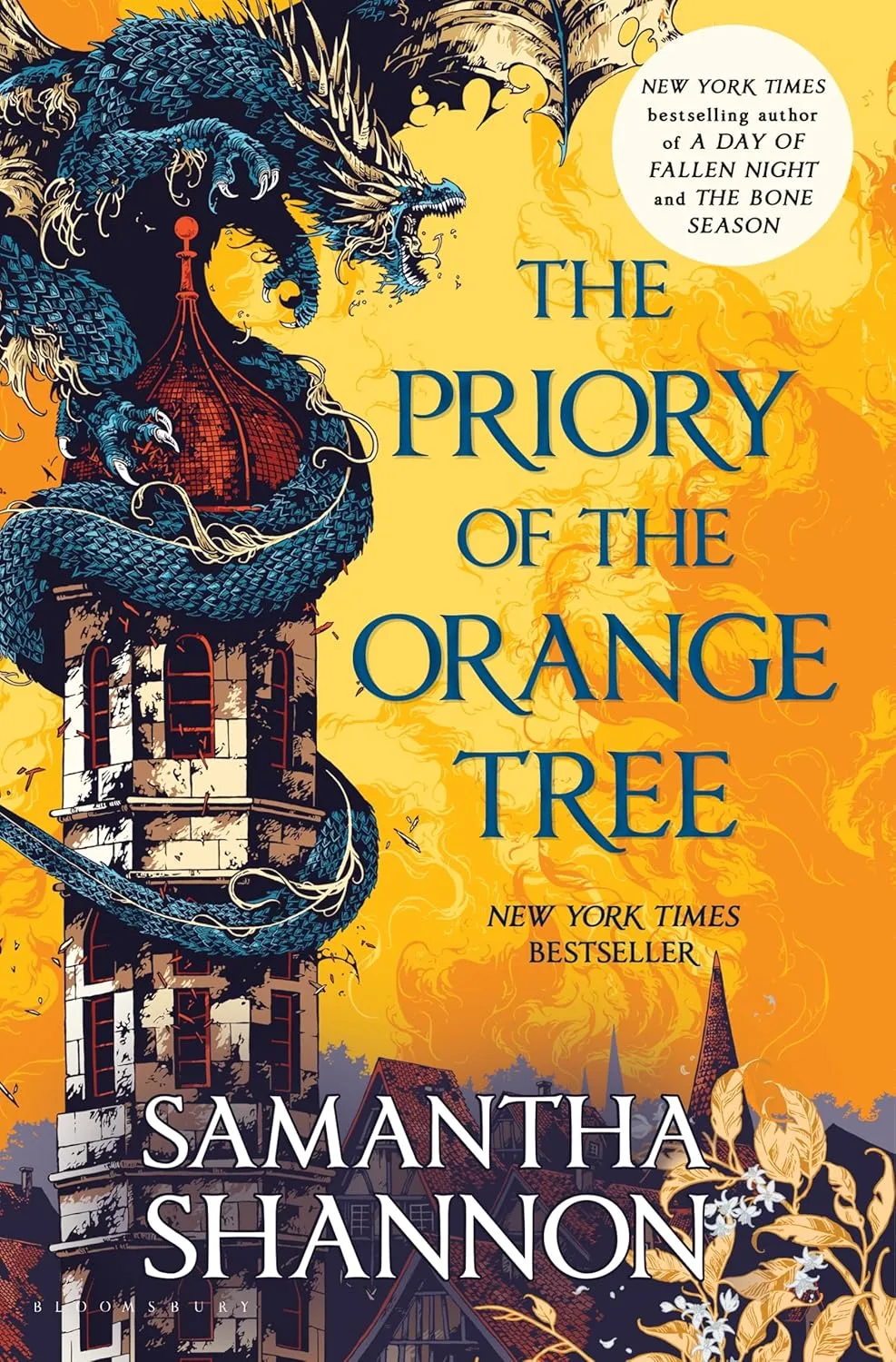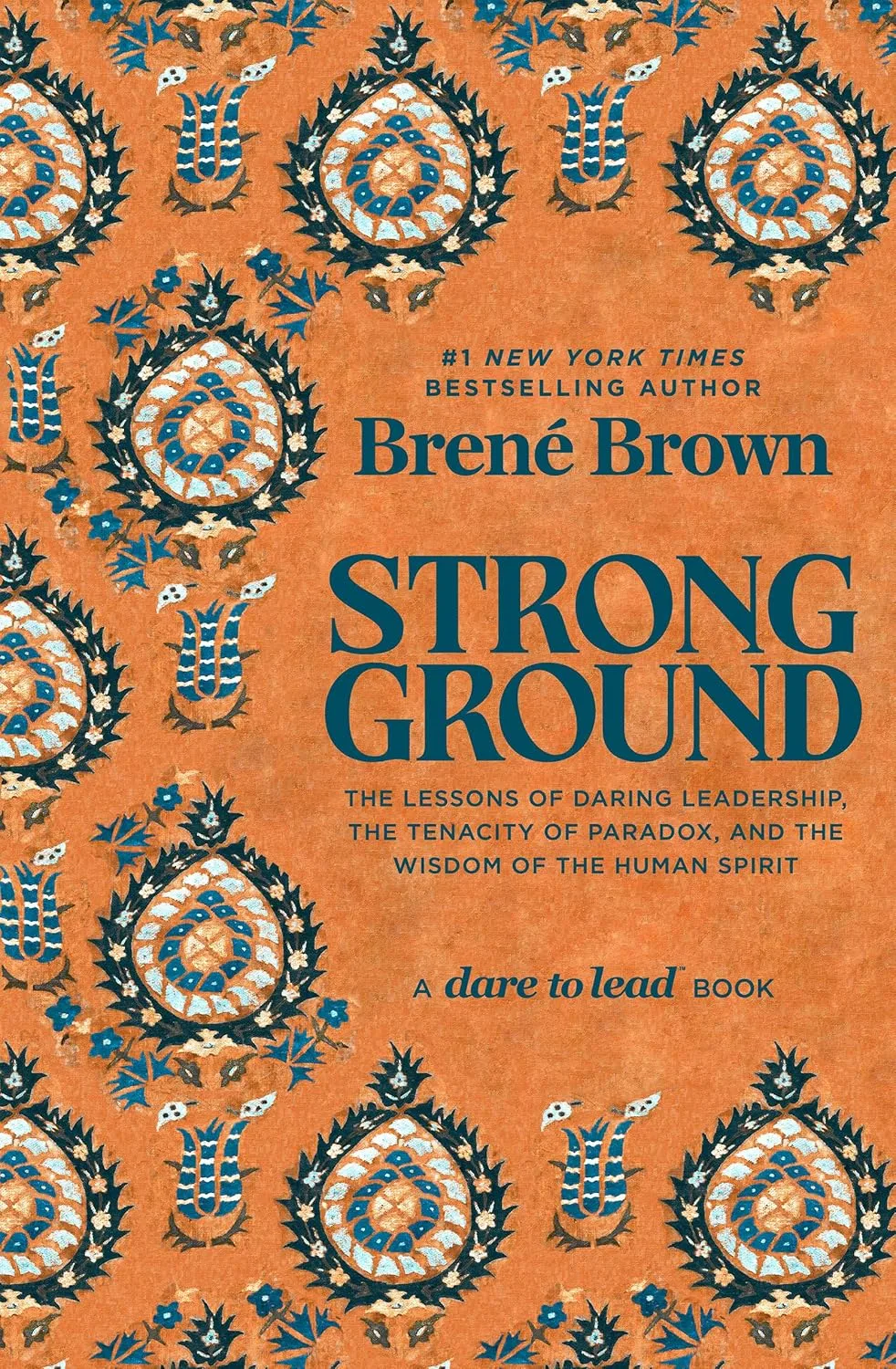Overview
Born Lucky is NewsNation anchor Leland Vittert’s deeply personal memoir chronicling his journey from a socially awkward, bullied child with autism to becoming an esteemed national journalist covering war zones and the White House. This is the story of a kid born with a serious condition whose parents made a radical decision to give their son the support and tools to find his place in a tough world.
In a world quick to label, judge, and box people in, one father and son stood firm and refused to be defined by an autism diagnosis. When viewers watch Vittert during his nightly NewsNation show or remember him from his years at Fox News Channel—on Middle East battlefields, at the anchor desk, or on the White House North Lawn—they see a poised journalist. No one, including friends and coworkers, has ever known his full life story and how miraculous it was to reach that point.
Leland was a socially awkward boy who didn’t speak for years, and when he finally did, teachers and leaders declared him “weird.” From hundreds of pushups at age 7 to toughen him against bullies, to coaching him through complex social interactions, Mark’s relentless dedication changed the trajectory of Leland’s life. The book offers intimate insights into their inspiring journey and provides hope to millions of families navigating similar challenges.
Key Takeaways
| Aspect | Details |
|---|---|
| Genre | Memoir, Biography, Disability/Special Needs, Inspirational, Parenting |
| Publication Date | September 30, 2025 |
| Publisher | Harper Horizon (HarperCollins) |
| Format | Hardcover, ebook, audiobook |
| Co-Writer | Don Yaeger |
| Author Age | 43 (at publication) |
| Core Message | With dedicated parenting and refusal to accept limitations, children with autism can thrive in unexpected ways |
| Autism Era | Born in the 1980s with what is now often called high-functioning autism |
| Career Achievement | Chief Washington Anchor for NewsNation, former Fox News correspondent |
| Target Audience | Parents of children with autism, ADHD, anxiety; anyone dealing with bullying or feeling different |
Book Structure
Born Lucky alternates between Leland’s perspective and his father Mark’s perspective, creating a dual narrative that shows both sides of their extraordinary journey:
Early Childhood: The Silent Years
Leland’s early development, delayed speech, and the growing realization that something was different. The bewildering evaluation results and the family’s initial response to the autism diagnosis.
The Diagnosis and Decision
Rather than accepting conventional wisdom about limitations, Mark and his wife chose an unconventional path: push Leland into the world rather than shelter him from it.
Elementary Years: Building Resilience
The hundreds of pushups at age 7 to toughen him physically and mentally against bullies, early lessons in navigating a world that didn’t understand him.
Middle and High School: The Crucible
The crushing bullying during middle and high school, relentless social rejection, and Mark’s coaching through increasingly complex social situations.
College: Rejection and Persistence
The sting of rejection continuing into college as Leland tried to forge his path while still struggling with social connections.
Finding His Voice: Journalism Career
His ultimate transformation into an esteemed journalist, covering war zones, presidential campaigns, and major national events.
Reflection and Lessons
What Leland and Mark learned through their journey, and the universal lessons for any parent whose child is struggling.
About the Author
Leland Vittert is the Chief Washington Anchor for NewsNation, hosting “On Balance with Leland Vittert.” At 43 years old, he has established himself as a prominent figure in broadcast journalism.
Career Highlights:
- Chief Washington Anchor, NewsNation
- Former Fox News Channel anchor and correspondent
- Covered major conflicts in the Middle East and Afghanistan
- White House correspondent
- Political coverage of multiple presidential campaigns
- Known for hard-hitting interviews and front-line reporting
Educational Background: Despite his challenges, Vittert pursued higher education and eventually found his calling in journalism—a career requiring the very social skills that once eluded him.
Why He Wrote This Book: “This book’s lessons go beyond autism. It’s about giving hope to every parent of a kid having a hard time. The lessons apply to ADHD, anxiety and the general bullying and difficulty growing up, which has only gotten worse with social media.”
Co-Writer: Don Yaeger is a former Associate Editor at Sports Illustrated and an acclaimed author who has co-written numerous bestselling books with sports figures and public personalities.
Why This Book Resonates
Hidden Story Revealed: Despite being in the public eye for years, colleagues and viewers never knew Vittert’s full story—the revelation is powerful and humanizing.
Timely Message: With autism diagnoses, ADHD, anxiety, and bullying (worsened by social media) affecting more children than ever, the book arrives at a critical moment.
Counterintuitive Parenting: Mark’s approach—pushing rather than protecting, toughening rather than coddling—goes against much conventional special needs parenting advice, offering an alternative perspective.
Success Against Odds: Vittert’s career achievements seem impossible given his childhood struggles, making his story genuinely inspirational rather than merely motivational.
Father-Son Bond: The deep relationship between Mark and Leland, built through struggle and dedication, resonates universally beyond autism.
Beyond Labels: The book challenges society’s tendency to label and limit people based on diagnoses, showing that potential often exceeds expectations.
Relevant to Many Struggles: While focused on autism, the lessons apply to any child facing difficulties—learning disabilities, anxiety, social struggles, or simply not fitting in.
Ideal Audience
This book is perfect for:
- Parents of children with autism seeking alternative approaches and hope
- Families dealing with ADHD, anxiety, or learning differences
- Parents of bullied children looking for strategies to build resilience
- Educators and therapists working with neurodivergent students
- Adults diagnosed with autism who see their own experiences reflected
- Anyone who felt different or struggled socially growing up
- Journalists and media professionals interested in Vittert’s career journey
- Parenting book readers seeking non-traditional approaches
- Those interested in resilience and overcoming adversity
- People questioning conventional wisdom about disabilities and potential
Memorable Quote
“In a world quick to label, judge, and box in people, one father and son stood firm and refused to be defined by an autism diagnosis.”
This encapsulates the book’s central message: diagnosis doesn’t equal destiny. Rather than accepting limitations others imposed, Mark and Leland chose to define their own path, refusing to let a label determine what was possible.
Central Themes
| Theme | Exploration in the Book |
|---|---|
| Refusing Limitations | Rejecting conventional wisdom about what children with autism can achieve; pushing boundaries rather than accepting prescribed limits |
| Parental Dedication | Mark’s relentless dedication—from hundreds of pushups to coaching through complex social interactions—changed Leland’s life trajectory |
| Building Resilience | Physical and mental toughness developed intentionally to withstand bullying and social rejection |
| The Bullying Crisis | Crushing bullying during middle and high school and its lasting impact, especially on neurodivergent children |
| Social Skills as Learned | Rather than innate abilities, social interactions can be coached, practiced, and mastered like any other skill |
| Finding Your Place | Everyone has a place in the world, even if the path there looks different than expected |
| The Power of Not Giving Up | Persistence through rejection and failure eventually leads to breakthrough |
| Unconventional Approaches | Sometimes the best solutions don’t follow the mainstream playbook |
| Identity Beyond Diagnosis | You are more than your diagnosis; autism is part of the story but not the whole story |
| Hope for Struggling Families | Giving hope to tens of millions of parents whose kids are struggling |
Key Moments and Lessons
The Pushup Strategy
At age 7, Mark had Leland do hundreds of pushups to toughen him physically and mentally against bullies. This unconventional approach symbolizes Mark’s philosophy: build strength rather than avoid conflict.
Social Interaction Coaching
Mark coached Leland through complex social interactions, treating social skills as learnable abilities rather than innate talents Leland would never possess.
The Bewildering Evaluation
With hopes to better understand their child and what he needed, his parents sought an evaluation. The results were bewildering. The autism diagnosis could have been limiting, but Mark and his wife used it as information, not a sentence.
Flying a Plane Before Age 12
Leland flew a plane from Alaska to Michigan before the age of 12—a remarkable achievement showing that autism didn’t limit his capabilities, just changed how he experienced the world.
Choosing Journalism
The career choice seems counterintuitive for someone who struggled with social cues and communication, yet Leland found his voice and purpose in a field requiring those very skills.
War Zone Coverage
Covering conflicts in the Middle East and Afghanistan demonstrated courage and capability far beyond what childhood predictions might have suggested.
The Hidden Story
Coworkers and viewers never knowing his background illustrates how successfully Leland integrated the skills his father taught him—he wasn’t masking autism but had genuinely developed abilities others thought impossible.
FAQ
Q: Is this book only relevant for autism families? A: No. Vittert says the lessons “go beyond autism” and “apply to ADHD, anxiety and the general bullying and difficulty growing up, which has only gotten worse with social media.”
Q: Does Vittert advocate “curing” autism? A: No. The book focuses on developing skills and resilience to navigate the world, not changing who Leland fundamentally is. It’s about thriving with autism, not despite it.
Q: Is Mark’s approach recommended for all autistic children? A: The book shares one family’s experience, not a universal prescription. What worked for Leland may not work for all children. It offers an alternative perspective, not definitive advice.
Q: Does Leland still consider himself autistic? A: Yes. The book emphasizes that autism is part of his identity and story, not something left behind or overcome.
Q: How does this relate to current autism acceptance movements? A: The book balances acceptance (autism as part of identity) with growth (developing skills to navigate a neurotypical world), which may provoke discussion in autism community.
Q: What’s Mark Vittert’s background? A: The book details Mark’s role as a dedicated father whose unconventional parenting approach shaped Leland’s development, though specific biographical details would be found in the book.
Q: Does the book address Leland’s current life and relationships? A: While focused on his childhood journey, the book includes reflection from his current perspective as a successful adult.
Q: Is it depressing or hopeful? A: While honest about difficult experiences including relentless bullying, the overall tone is hopeful and inspiring, showing triumph through adversity.
Parenting Philosophy: Mark’s Approach
Push, Don’t Protect: Rather than sheltering Leland from a world that might reject him, Mark pushed him into it, believing exposure and resilience-building were more valuable than protection.
Physical Toughness Matters: The emphasis on physical fitness and strength wasn’t just about self-defense but about building mental toughness and confidence.
Skills Can Be Taught: Social interactions, emotional regulation, and communication—abilities that came naturally to others—were treated as skills that could be learned, practiced, and mastered through dedicated coaching.
High Expectations: Rather than lowering expectations based on diagnosis, Mark maintained high standards, believing Leland could achieve more than experts predicted.
Persistent Engagement: Mark’s relentless dedication meant constant coaching, teaching moments, and refusal to give up even through failures and setbacks.
Real-World Preparation: Instead of controlled, protective environments, Mark prepared Leland for the actual world he’d inhabit as an adult.
Broader Implications
For Autism Community: The book contributes to ongoing conversations about neurodiversity, inclusion, accommodation versus adaptation, and what success looks like for autistic individuals.
For Parenting: Challenges helicopter parenting and overprotection, suggesting sometimes the most loving thing is to toughen children up for life’s challenges.
For Education: Raises questions about how schools handle neurodivergent students, bullying prevention, and supporting students who don’t fit typical molds.
For Bullying: Acknowledges that “general bullying and difficulty growing up has only gotten worse with social media,” making the book’s lessons increasingly relevant.
For Media Representation: Vittert’s success in broadcast journalism challenges assumptions about careers appropriate for autistic individuals.
Critical Perspectives
Strengths:
- Authentic, personal story with genuine stakes
- Dual perspective (father and son) adds depth
- Challenges limiting assumptions about autism
- Offers hope without sugarcoating difficulties
- Practical insights from real experience
- Relevant beyond autism to various childhood struggles
Considerations:
- High-functioning autism experience may not translate to all autism experiences
- Intense parenting approach won’t suit all families or situations
- Some autism advocates may critique emphasis on adapting to neurotypical world
- Success story could create unrealistic pressure on other families
- Each autistic person’s journey is unique; this is one story, not a template
Final Thoughts
Born Lucky is ultimately a love story—a father’s love manifested through relentless dedication, and a son’s gratitude for a parent who refused to accept limits others tried to impose. It’s a story about the transformative power of belief: when someone believes in your potential despite a diagnosis that says otherwise, remarkable things become possible.
What makes this memoir powerful is its honesty. Vittert lays bare his experiences of the crushing bullying during middle and high school, the sting of rejection continuing into college, and the ongoing challenges of navigating a world not built for how his brain works. This isn’t a sanitized success story but an authentic journey through genuine struggle toward hard-won achievement.
The book arrives at a crucial moment. With autism diagnoses rising, bullying intensified by social media, and anxiety affecting more young people than ever, parents desperately need hope and alternative strategies. Vittert offers both, though readers should remember this is one family’s approach, not a universal formula.
Mark’s parenting philosophy will resonate with some and concern others. His emphasis on toughening Leland up, pushing him into uncomfortable situations, and maintaining high expectations contradicts much current special needs parenting advice focused on accommodation and acceptance. This tension makes the book discussion-worthy, even controversial—and ultimately more valuable for the conversations it will spark.
For readers who felt different, were bullied, or didn’t fit in—whether due to autism or other reasons—Vittert’s story offers validation and hope. You can find your place. You can develop skills that don’t come naturally. You can achieve things others said were impossible.
For parents of struggling children, the book’s message is clear: Give hope. Don’t give up. Your child’s potential may exceed every expert prediction and diagnosis-based limitation.
Recommendation: Essential reading for autism families, valuable for parents of any struggling child, and inspiring for anyone who overcame being “different.” Approach with awareness that one family’s successful approach isn’t necessarily the right approach for all, but appreciate the hope, love, and perseverance that shine through every page.
Impact and Reception
Media Coverage: The book has received significant media attention, with Vittert appearing on various programs to discuss his story. His visibility as a journalist has helped bring attention to autism and neurodiversity.
Relevance to Current Issues: The book addresses issues that have “only gotten worse with social media,” making it particularly relevant for current families navigating challenges that didn’t exist in Vittert’s childhood.
Potential for Discussion: The book’s approach may spark healthy debate in autism communities about different philosophies for raising neurodivergent children.
Links
- Buy the Book on Amazon
- Read More Summaries
- Barnes & Noble
- Harper Horizon Publisher Page
- Goodreads
- NewsNation: On Balance with Leland Vittert







